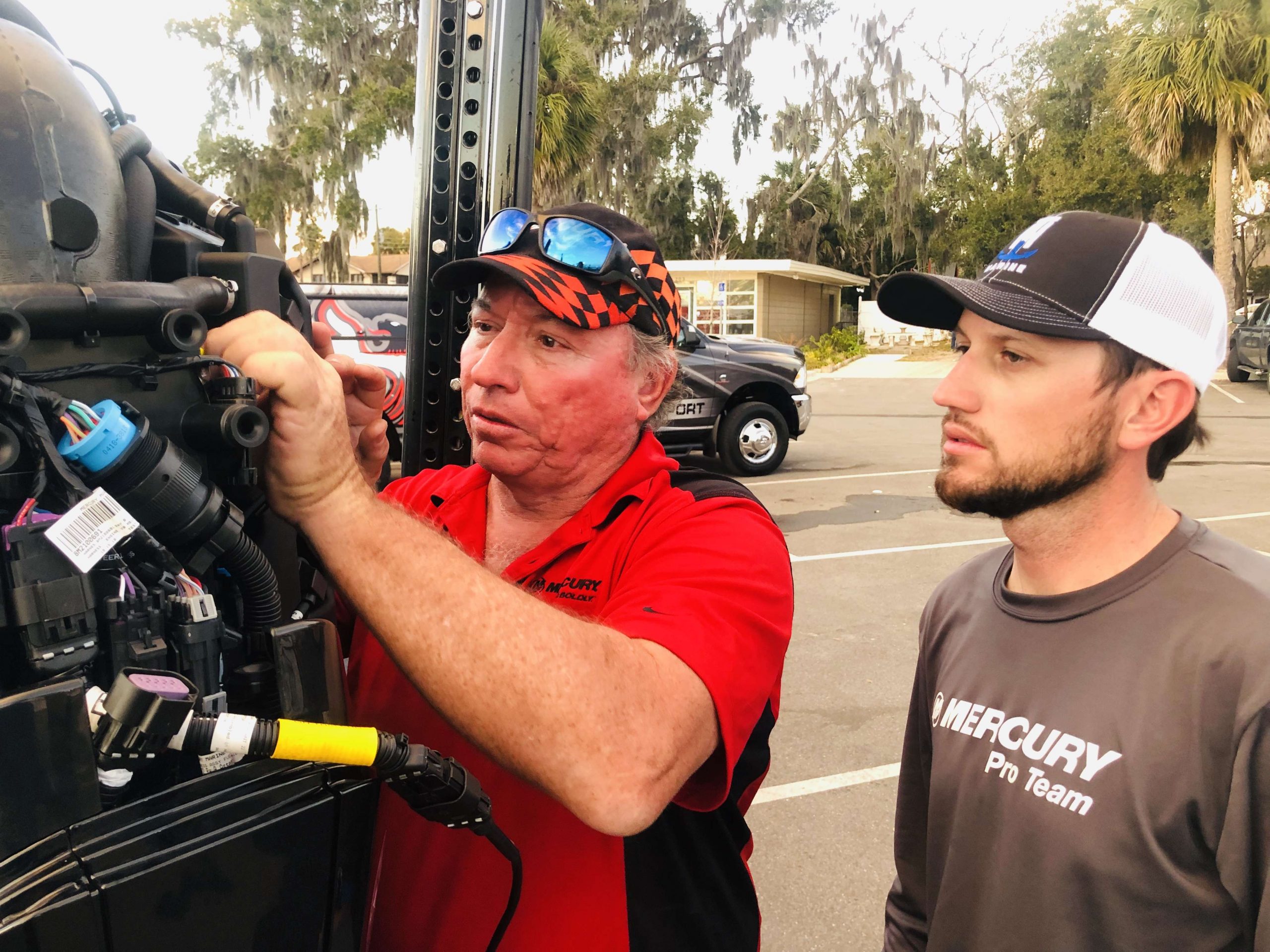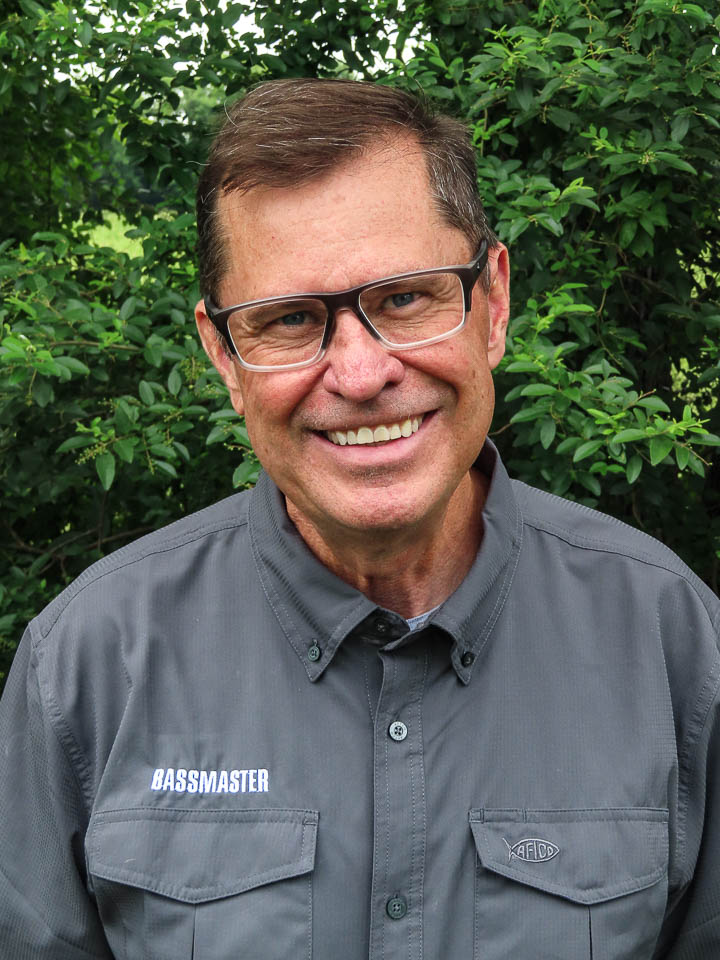
Up long before daylight and in bed way after dark. Checking in and out of hotels for months at the time. Drive through fast food and takeout grub eaten on and with plastic. Working in all kinds of weather, rain or shine, bone chilling cold or sweat pouring heat.
Who would think of doing this for a living? Meet the unsung heroes of the Bassmaster Elite Series that do it with skillful pride. They are the factory-trained service technicians who the pros call their most important asset—on and off the water.
On tournament days service techs respond to calls for help on the water with the same urgency as first responders. The techs take great pride in getting the job done with pit crew speed. With equal vigor the repairs are made following the weigh in at the designated parking lot where crews set up shop.
Scott Beattie belongs to what he calls a family, a fraternity of brothers and sisters that work tirelessly to keep the anglers competitive using their respective brands and products.
Beattie is a special events service manager and field engineer for Mercury Marine, and primarily for the outboard brand. To say Beattie likes the job is an understatement because he’s been at it for 41 years and counting. An avid fisherman, he resides in Fort Lauderdale, Fla., when not on the road, which is most of the time.
Here is a snapshot of his life on the road as a service yard savior.
How many weeks do you travel each year?
I travel anywhere from 24 to 35 weeks every year.
Beyond the technical training what’s it take to be good at your job?
Basically you need to have product knowledge, you have to handle situations that arise quickly, be very personable and have a sympathetic ear for the fishermen.
What happens when you roll into town?
That depends on whether or not we’ve been there before. The tournament organizer usually sets aside an area near the boat ramp or the venue for us to set up. If it’s someplace new we get the lay of the land, get our trailer set and from there it’s usually game on.
What goes on during practice?
We normally arrive at the yard on practice days at 8:30 in the morning. Typically it’s a lot of checking setups on boats, engine height adjustments, prop checks. We call it testing and tuning. We want the guys to get peak performance out of the motors, which is very important, because we like to see them out front.
What about the tournament days, when it really gets busy?
Tournament days for us start around 4:30 in the morning and then we are on duty all day. We don’t call it a day until the last boat leaves the yard that night. The location has a lot to do with our workload, too.
How so?
We have a lot of places with low water and a lot of stumps. That correlates to impact damage on gear cases or propeller damage. We have to be ready for that and we stock parts accordingly for the areas that we are going.
What is an example of how that works?
A problem we run across no matter where it is quality of fuel, which is a major problem because it affects performance of the motors. Some towns are worse than others, and there are winter blends, summer blends. There are just a lot of variables that must be quickly identified so you can get the guy back out on the water.
What about service calls on the water? Do you make those?
Yes, it happens. If a breakdown occurs in a remote area that is inaccessible to our trailer then we go by boat. We do whatever it takes to get them back in action.
What’s inside the trailer?
We carry everything from the smallest part, a diaphragm or spark plug, to a power head or a gear case. It’s basically a rolling boat dealership service department.
What is a tool you cannot do without?
It’s not a hammer like you might think. The most important tool for us is a laptop computer. We developed the SmartCraft full suite of digital technology that integrates gauges, sensors, and the vessel systems, basically everything. It is essentially a window to the computer that’s part of the motor. We can use the laptop to communicate with the engine about what might be wrong.
Your favorite breakfast place is what and where?
We like to visit the local breakfast places because they are always the best. Every town has a special breakfast restaurant or diner and we have a list of favorites. We try to spend our money with the local people so they will welcome us back.
Any travel quirks?
We try to stay at a Holiday Inn Express because those are consistent. The rooms are consistently the same, the services, everything. Consistency is good when you don’t have much of it on the road.
What do you like most about your job?
You know what? I just love my job. I just love the camaraderie with the guys. All of us in the service yard are a family, brothers and sisters, regardless of whom we work for. And obviously, I love the travel, because I would be very miserable if I did not.

